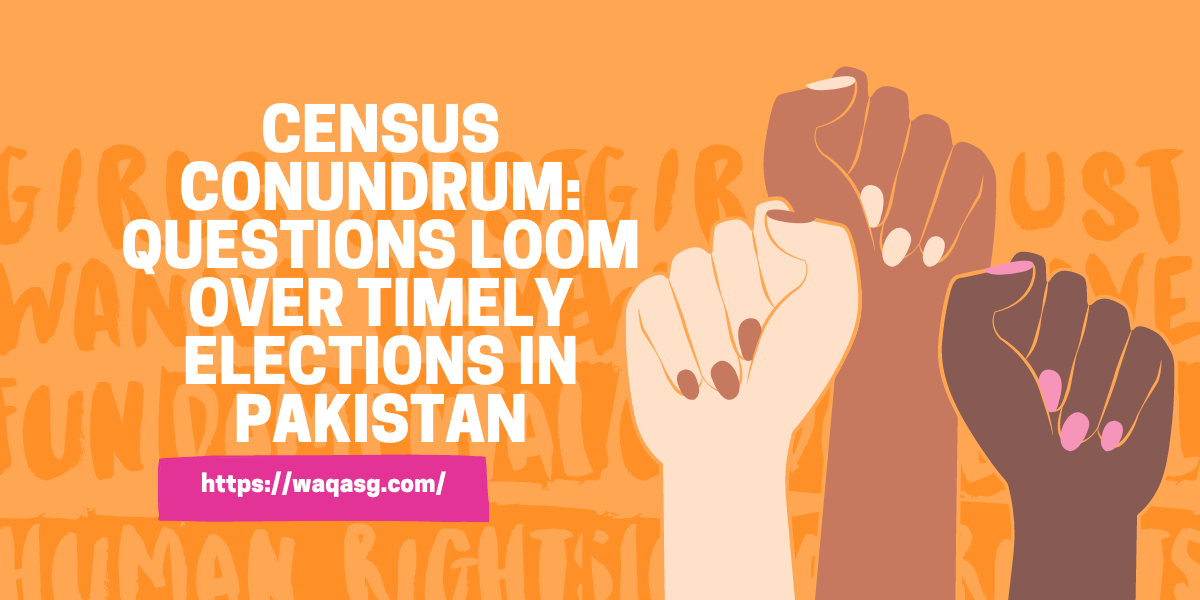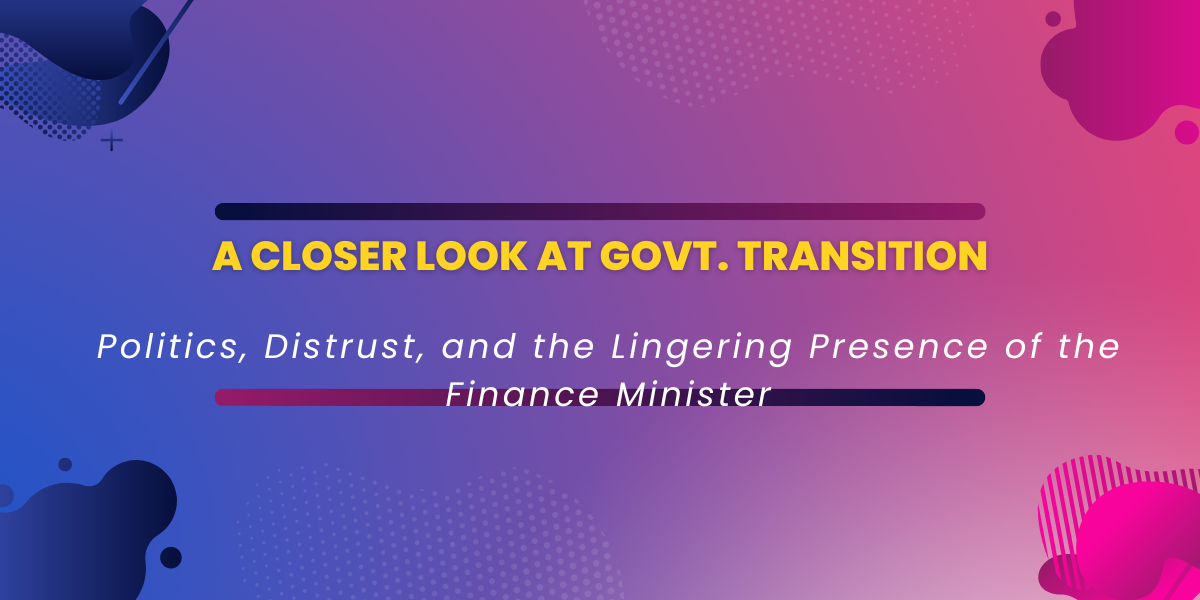Introduction
This analysis explores the recent declaration by the prime minister (PM) regarding the conduction of general elections based on the recently concluded digital census of the Islamic Republic of Pakistan. This so called announcement has sparked uncertainty and raised significant questions about the feasibility of holding timely polls. However, the government ministers had consistently advocated using the 2017 head count for elections, this definitive statement has introduced complexity into the electoral process. This article highlights the procedural challenges involved in officially notifying the census results; moreover, implementing constitutional amendments, and conducting delimitation processes; if, the government proceeds with the new census data.
In addition to that, the impending end of the National Assembly’s tenure adds to the complexity, and concerns about potential constitutional maneuvering and political dynamics further complicate matters. Upholding the sanctity of the constitution and democratic principles becomes paramount to ensure a transparent and inclusive electoral process. The responsibility rests on major political players like the PML Nawaz to foster consensus and establish a well-defined time frame for the upcoming elections, prioritizing the collective welfare of the nation.
Uncertainty and Procedural Challenges in Elections based on New Census Data”
The recent declaration by the PM regarding the conduction of general elections 2023 based on the recently concluded digital census 2023 has created waves of uncertainty. Therefor, in the political landscape, giving rise to a series of significant questions. The most pressing concern revolves around the feasibility of holding the polls within the stipulated time frame. Despite this, government ministers had consistently asserted that the elections would be conducted based on the 2017 head count. However, the prime minister’s categorical statement on a local TV channel has introduced complexity and ambiguity into the electoral process of the Islamic Republic of Pakistan.
Should the government proceed with elections based on the new census data, several procedural challenges must be addressed. Firstly, the results of the recent head count need to be officially notified. Additionally, a constitutional amendment would be essential to incorporate the updated population figures, followed by the necessary delimitation process to be carried out by the Election Commission of Pakistan (ECP). Achieving these crucial steps would require prompt action and seamless coordination to adhere to the constitutionally mandated period for conducting elections.
Challenges and Concerns with Expiring National Assembly Tenure and Potential Constitutional Maneuvering in Election Process
Moreover, the expiring tenure of the National Assembly further complicates the situation; and leaving limited time for legislative procedures. The insufficient numbers in the NA to pass an amendment authorizing new delimitation present a formidable obstacle in ensuring the timely organization of elections based on the 2023 census data.
The current situation raises legitimate concerns about the potential use of constitutional maneuvering by the government, akin to what was observed during the appointment of caretaker setups in Punjab and Khyber Pakhtunkhwa. There are apprehensions that the central caretaker administration might seek to extend its tenure beyond the legally mandated 90 days, leading to a further escalation of the legal and constitutional crisis.
Adding to the complexity of the situation are the political dynamics at play. Opposition parties, including the Muthida Quomi Movement and Pakistan Peoples Party, have voiced reservations about the credibility of the latest census results. This lack of consensus on the issue could create an opening for political engineering, especially if the caretaker administration calls a meeting of the Council of Common Interests to approve the 2023 census.
While conducting elections based on the most recent census data is desirable, it is of utmost importance to uphold the sanctity of the constitution and the democratic process. It is imperative that the polls are not delayed beyond the constitutionally mandated period allotted to the caretaker government for organizing them. The PML-N, being a prominent political player, holds a responsibility to dispel any confusion and work towards forging a consensus around holding the elections based on the 2017 figures. A transparent and well-defined time frame for the general elections is crucial to preserve the integrity of the democratic process and uphold the principles of the rule of law.
Challenges and Risks in Addressing Census Controversy: Upholding Constitutional Integrity in Electoral Process
Parties like the MQM and PPP express reservations about census credibility, creating a significant obstacle for the government. Achieving consensus during the Council of Common Interests meeting seems highly improbable. The situation may lead to political engineering if the caretaker government calls for a CCI meeting to approve the 2023 census.
Upholding the constitution and democratic principles is paramount, making elections based on recent census data desirable. The polls must not be unduly delayed beyond the constitutionally mandated period allotted to the caretaker government. Exploiting the census controversy to prolong the electoral process indefinitely is unacceptable.
PML-N’s Role in Building Consensus and Ensuring Transparency in Electoral Process”
The PML-N, as a significant political party, must overcome these challenges and address the prevailing confusion surrounding the census results. Proactively engaging in constructive dialogue with other political stakeholders, the party must establish a consensus on conducting elections based on the 2017 figures. Such collaboration will pave the way for a clear and defined time frame for the general elections, providing the much-needed stability and direction to the nation’s electoral process.
All political parties must prioritize the country’s collective welfare and transcend partisan interests. Guided by transparency and strict adherence to the rule of law, the government must diligently address stakeholders’ concerns and foster an inclusive electoral environment. This approach is crucial to ensure a fair and manipulation-free electoral process, fully respecting the constitutional framework that underpins the nation’s democracy. Upholding these fundamental principles will propel Pakistan forward in its democratic aspirations and reinforce the democratic institutions that form the backbone of the nation’s governance.
Conclusion
In conclusion, the recent announcement of conducting elections based on the new census has introduced uncertainty and raised critical questions. The feasibility of holding timely polls remains uncertain, given the prior emphasis on the 2017 head count. Overcoming procedural challenges, including notifying census results and implementing necessary amendments, is essential if the government proceeds with the new census data. Moreover, the situation is further complicated by the approaching expiration of the National Assembly tenure and concerns about constitutional maneuvering. To uphold the sanctity and transparency of the constitution, it is imperative for major parties like the PML-N to unite and establish a clear election time-frame, with the nation’s welfare as the top priority. All political parties must prioritize democracy, rise above their own interest and ensure a fair environment for election, there by strengthening Pakistan’s democratic aspirations and governance.

